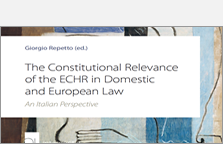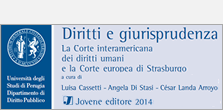BORGIA C. – L’effettività delle garanzie fondamentali di cui all’articolo 6 della CEDU nel processo tributario.
Autore dell’articolo/Author
Cesare Borgia
Abstract
L’Autore evidenzia come la sentenza della Corte EDU in commento si pone in linea di continuità con le precedenti decisioni volte all’affermazione del giusto processo in materia tributaria. In una fattispecie che presenta profili tributari e sanzionatori inscindibilmente connessi, l’articolo 6 CEDU – fondamentale presidio del giusto processo – trova pieno riconoscimento, innalzando il livello di tutela dei diritti del contribuente. In particolare, gli obblighi di motivazione della sentenza, così come i risultati raggiunti per scongiurare i rischi di violazione del principio del ne bis in idem, rappresentano garanzie fondamentali da estendere anche al processo tributario.[…]
The author points out that the judgment of the EDU Court in comment is in line with previous decisions aimed at the affirmation of due process in tax matters. In a case that presents tax profiles and sanctions inseparably linked, Article 6 of the ECHR – fundamental safeguard of the fair trial – finds full recognition, raising the level of protection of the rights of the taxpayer. In particular, the obligations to state reasons for the judgment, as well as the results achieved to avert the risks of infringement of the ne bis in idem principle, represent fundamental guarantees to be extended to the tax process as well.













